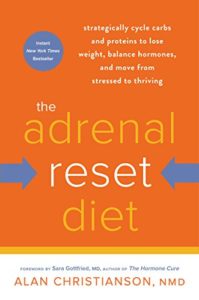All you Need to Know about the link between Menopause and Mental Health
“We can come out of this phase of life stronger, wiser, and feeling gratitude for the small things in life. Life circumstances play a part in how we get through this time. It’s possible that your emotional insanity and regulation could go down a notch, but no one can predict that, as all women are different.”-SANE Forums Member
This article will provide essential information about the connection between menopause and mental health issues in women going through this life transition. Why do some women experience anxiety, depression, or moodiness at perimenopause and menopause? Are there ways to overcome these mental issues?
The main goal of this post is to educate women about specific symptoms related to menopause and reassure them that if you are going through these difficulties, there is hope, and you are definitely not alone. There are ways of staying mentally well during menopause with or without treatment.
In most cases, just implementing various lifestyle changes can and will help you cope with the changes brought in by menopause.
It’s worth noting that some women have barely noticeable symptoms, while others experience significant changes. In some cases, menopause and the reduction of estrogen can have an impact on someone’s mental health or exacerbate a pre-existing condition.
Disclaimer: This post contains affiliate links. Should you purchase a product through those links, I may earn a small commission at no additional cost to you. Know that I stand behind all the products I promote.
What is Menopause?
Menopause is a normal and natural biological process in a woman’s life that marks the end of their menstrual cycles. It is diagnosed when you have gone 12 months or more without menstruating. It usually happens between the age of 45 and 55. The average age is 51 in the case of US women.
Hormones are the messengers in the body that start, stop, speed up, or slow down our physical and chemical functions. Ovaries are the source of estrogen and progesterone, the two key hormones that control the reproductive system, including the menstrual cycle and fertility in women.
During menopause, estrogen depletion can bring a combination of hormonal and biochemical fluctuations that can lead to changes in the brain and nervous system.
Shifts in the levels of female hormones can cause temporary mood changes, including symptoms of depression.


How can menopause affect your mental health?
Women feel there are many changes happening in their bodies, which leads to some psychological changes. To cope with these changes, they need to understand why these changes happened and how to deal with them.
In the months or years leading up to menopause –perimenopausal phase- a woman may experience several symptoms such as:
- Hot flashes
- Night sweats
- Irregular periods
- Vaginal dryness
- Mood swings
- Loss of sex drive
- Fatigue
- Thinning of hair and eventual hair loss
- Memory loss
- Bloating
- Allergies
- Sleep disorders
- Poor concentration
- Dizziness
- Weight gain
- Depression
- Anxiety
- Irritability
- Join pain
- Headaches and itching skin
Menopause can have a significant impact on a woman’s mental well-being. Depression, anxiety, and mood swings often occur alongside the previously mentioned physical symptoms. Some of these physical symptoms contribute adversely to your emotional state, while some of the emotional symptoms occur without a physical explanation. And an increased emotional sensitivity can intensify when physical symptoms manifest and disrupt daily life.
Menopause and Depression
If you have been fatigued or experiencing brain fog recently, you may be wondering, can menopause cause mental health problems? Granted, we expect perimenopause and menopause to bring changes to our bodies, but we are not always ready for the effect they can both have on our minds.
As I stated earlier, changes in our hormones can cause various mood swings. These can include symptoms of depression and anxiety. The changes in hormones can trigger emotions, and our mood can be affected during the menopausal transition.
Clinical trials are yet to find a link between depression and menopause. However, research suggests women who had severe PMS in their younger years or experienced postpartum depression may have more severe mood swings during perimenopause and menopause.
Additionally, women with a history of clinical depression also seem to be particularly vulnerable to recurrent clinical depression during menopause.
These mood changes are not completely hormone-based, although hormones do play a significant role. Mood changes during perimenopause and menopause are usually mild, and hormone changes are believed to cause these milder depressive symptoms.
An increase in depression during perimenopause has been linked to fluctuations in both progesterone and estradiol (which is a form of estrogen). However, changing female hormones aren’t necessarily related to major depression.

Additional factors that may influence women’s mental health during menopause
Besides the known effect of estrogen levels, other factors can affect a women’s mental health. This phase of life is often burdened with emotional stressors such as:
- Medical health, such as an overactive thyroid gland
- A lack of knowledge about a healthy lifestyle, exercise, and self-care
- Lifestyle factors such as smoking, alcohol consumption, and drugs
- How you view your body and the changes happening to you
- What you perceive as achievements or lack of achievements in your life
- Past trauma, including childhood
- Ending or starting relationships
- Grown children leaving or returning home
- Financial or career changes
- Concerns about aging parents
- Getting older in a society that values youth
- Worries about the health of a partner
- Need to reevaluate life/expectations
Recognizing the symptoms and understanding the risks of depression
Menopause depression is more than only normal anxiety, occasional mood swings, sadness, or low moods. It is considered a serious mental disorder resulting in more complicated conditions unless the proper treatment is implemented.
Menopause depression may be described as a prolonged state of extreme sadness that can last more than two weeks, often with no specific cause that can be pointed out.
Let’s take a closer look at other symptoms of depression:
- Irritability, frustration, or angry outbursts
- Anxiety, restlessness, or agitation
- Feelings of guilt or worthlessness
- Loss of interest in activities you used to enjoy
- Trouble concentrating or making decisions
- Lapses in memory
- Lack of energy
- Sleeping too little or too much
- Changes in appetite
- Unexplained physical pain
It’s also important to understand the risks of depression. The rapid drop in estrogen may not be the only thing affecting your mood. Other factors can contribute to the onset of depression:
- Diagnosis with depression prior to menopause
- Negative feelings towards menopause or the idea of aging
- Discontent about your work, living environment, or financial situation
- Low self-esteem or anxiety
- Not feeling supported by the people around you
- Lack of exercise or physical activity
- Poverty, lack of social support and resources
Understanding what triggers your depression and low mood is essential to determine the most effective treatment options.
Menopause and anxiety
While studies have linked perimenopause and menopause to depression, the connection is less clear regarding anxiety. A lot less is known about anxiety in menopause. However, there is evidence that women are more likely to experience panic attacks at this time. A panic attack is marked by a sudden sense of extreme anxiety, accompanied by symptoms such as sweating, trembling, shortness of breath, or harmless heart rhythm disturbances called palpitations.
Be aware that during a panic attack, your heart may race, and you may feel hot and sweaty, which is also how you can feel during a hot flash. A feeling of panic or even a sense of doom can precede a hot flash. To distinguish between a hot flash and a panic attack, note how flashes don’t make you short of breath, and panic attacks may.

How to cope: Tips to stay mentally well during menopause
Emotional health during perimenopause and menopause requires a balance between self-nurturing and work obligations and caring for others. Many women can identify and describe sources of tension and symptoms of stress but may still find it challenging to take time for themselves.
Recognizing a problem is the first step to finding ways to cope. Although many stressors can’t be altered, coping strategies can enable women to meet life’s challenges and create a renewed sense of self-confidence, balance, and harmony.
I reiterate that most women whose mental health is affected while going through perimenopause and menopause suffer from passing feelings of sadness, mood swings, low mood, and irritability. These symptoms rarely require treatment to resolve.
Typically, the mood changes accompanying female hormonal changes during the menopausal transition will not last. Know that it’s temporary and that help is available.
Treating mental health issues with lifestyle changes
Mood swings, irritability, sadness, low motivation, feelings of aggression, stress or tension, trouble focusing, and sleep issues can all contribute to a negative mental state during menopause.
How to prevent, avoid, or cope up with these adverse effects?
Cope up with menopause by making lifestyle changes to accommodate changing energy levels, boost mood and enhance health.
Dealing with the negative mental impact of perimenopause and menopause requires a multi-layer approach. This is especially true because there is no one-size-fits-all set of symptoms associated with perimenopause or post-menopause.
Every woman’s experience is different and unique. Therefore, it’s important to become aware of mood changes in your day-to-day life and whether you are affected by stress or anxiety. Monitor your mood.
Here are some lifestyle changes that can provide natural relief from your mental health issues.
- Get adequate sleep. Many women in menopause experience sleep problems. Your doctor may recommend getting more sleep at night. Try to follow a regular sleep schedule by going to bed at the same time every night and waking up at the same time each morning. Keeping your bedroom dark, quiet, and cool while you sleep may also help. Please read my blog post “Menopause and Sleep.”
- Get regular health check-ups. Visit your gynecologist to rule out the possibility of a thyroid malfunction or a disease of the reproductive organs.
- Get regular exercise. Regular exercise can help relieve stress while boosting your energy and mood. Try to get at least 30 minutes of exercise a day, five days a week. Going for a brisk walk or bike ride will do it. It is also important to include at least two sessions of muscle-strengthening activities in your weekly routine. Weightlifting, exercise with resistance bands, and yoga may be good choices.
- Eat well. Eating foods rich in vitamins and minerals is essential to feeling good and adjusting your body to all the changes it is experiencing. Nutrient-rich foods support your body mentally and physically, help you maintain or lose weight, and keep your body strong and stable.

- Keep a journal. When you feel anxious or depressed, or your moods are all over the place, you might benefit from keeping a journal. Writing down your thoughts and feelings may help you cope with this life transition and connect physical symptoms with your emotional state.
- Social network and family. Reach out to others, don’t struggle alone. Confiding with close friends about your menopause experience can lessen your anxiety and stress. Females in your age group may also be going through the same concerns and issues and want to share. Discussing your situation with a supportive life partner provides a greater understanding of why you feel the way you do.
- Take time out. Taking a break from responsibilities creates space for personal relaxation and inner reflection. Self-care is particularly important; set aside some “me” time and indulge in a hobby or activity you genuinely enjoy.
- Find joy. The simplest things in life bring so much pleasure. A lunch with friends or family, a walk in the park, the coast, whatever makes you happy. These moments of pleasure enhance feelings of well-being.
However, these lifestyle changes do not always alleviate all the concerning emotional and mental health problems that may arise as estrogen and progesterone levels continue to fluctuate. Sometimes, writing down your feelings or chatting with friends is not enough to help you feel better. If you are overwhelmed and unable to cope:
Talk Therapy. Speaking with an experienced and objective professional, such as a social worker, counselor, or psychologist, can help you produce strategies to manage your depression, anxiety, or other emotions associated with menopause.
Medications and Alternative Therapies. You can also speak with a medical professional about how the symptoms affect your daily life. Your doctor might be able to prescribe anti-depressants or hormone replacements to help alleviate the symptoms.
Finding a support group, seeking out herbal supplements, engaging in one-to-one talk therapy may also help.
Concluding thoughts
When you look at the potential effects of menopause and societal pressures, this period can sound overwhelming. There is much still unknown about the symptoms of menopause. There are also varying factors, as we are all unique individuals. However, there is hope.
Discovering what works for you to ease hormone-related mental health challenges can pay off with better sleep, improved mood, and lower stress levels. This, in turn, can support overall better health as you transition into this new phase of life.
Science is starting to make promising inroads in women’s health to the benefit of everyone.

